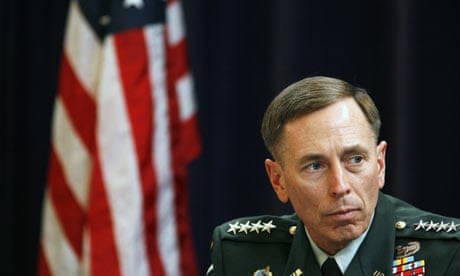General David Petraeus encapsulates the modern warrior: thinker, diplomat and man of action. I venture his name will be remembered more as an approach - a Marshall, a MacArthur - than as an individual or simple soldier. He will stand among those who were part of the solution, not part of the problem, when the turbulent history of the post-9/11 world is recounted.
What sets him apart from so many modern generals is that firstly he is a student of history and secondly he understands how to lever both force and intellect, surrounding himself with the finest brains and the stoutest hearts. His public language is measured, short, yet full of protein.
He understands the counter-insurgency strategies of the past better than any commander since Field Marshal Gerald Templer. Learning from history, including Ulster and Malaya, Petraeus understood there could be no simple "kinetic solution" in Iraq.
He placed the new Iraqi police in the van of the struggle ahead of the US and Iraqi armies. He sought partnership with the Iraqis. He understood the need for a policy based on the rule of law; a solution based on justice. He understood that it must be the civil authority that leads.
Since the invasion of 2003 the "Petraeus approach" has never been conventional. He understood that the key to success was the people of Iraq herself.
There were many who doubted his haste to establish Iraqi security institutions as commander of the Multi-National Security Transition Command Iraq.
As commander of coalition forces he extended the hand of friendship and alliance to the tribes of the Iraqi Sunnis, hitherto the constituency of al-Qaida in the darkest days of the violence. He defended the Shia majority even as the Iranian-backed militias failed. These acts are now celebrated as '"the awakening" and "the surge" respectively.
Many confidently predicted that these strategies would fail. The cynics were wrong and wrong again.
But his finest hour is yet at hand. As commander US Central Command the seemingly intractable puzzle of Afghanistan is now in his lane. He is now at the helm of the "war on terror".
Yet that is a term he rejects. His approach is to eschew any trapping of legitimacy for the killers and the thugs. His approach is to deal with them for what they are: criminals with no authority, no mandate nor any right to do what they do.
But for every effort in knocking down equal effort is expended in setting up: institutions, ministries, police units, indigenous military forces. It is what sets his approach apart. It's the long war. It is putting the onus on the host nation to succeed: local rule of law, backed by local military aid to the civil power backed by the international community.
For our children, the struggle of law over chaos and the fight for justice will characterise the beginning of the 21st century. When future generations study this fight they will learn of the "Petraeus approach". Israel take note.
